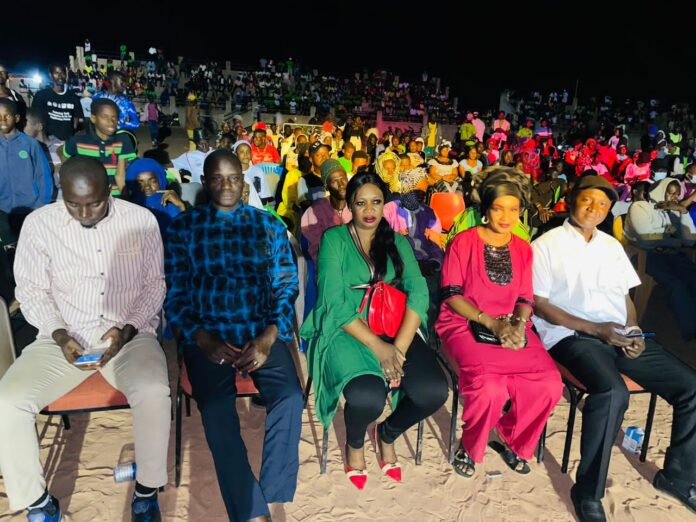By Ndey Sowe
Fulbe Africa (FA), an international cultural organisation based in The Gambia, over the weekend organised an international cultural festival, held at Farafenni Mini Stadium in the North Bank Region (NBR).
The cultural festival attracted different people within the sub-region, including Mali, Senegal, Sierra Leone and The Gambia. It was characterised by cultural performance and Fulani music on Friday night followed by a conference on Saturday.
There was also a musical performance on Saturday night too at free entry which attracted Gambian and Senegalese artists as well as historians.
The annual event was aimed at promotingthe rich and beautiful cultures and traditions of the Fulbe people with a view to unite all Fulbe people under one umbrella. It was also meant to revive the Fulani cultural heritage and traditional practices in The Gambia and Africa as a whole.
Alieu Sowe, President of Fulbe Africa, expressed his delight for the successful implementation of the 9th anniversary, saying the event aimed to promote and revive the Fulani cultural heritage in the sub-region.
“This event is held here (Farafenni Town) to decentralise FA cultural activities to the rural Gambia,” he said.
The FA leader said there is a greater need for maintenance of peace and unity among Fulanis and other ethnic groups in the Gambia to ensure sustainable development in the country and the sub-region as a whole.
“Peace and unity are one of the key objectives of the organisation,” he said.
However, he commended the people of NBR for welcoming FA and for their hard work in the implementation of the annual event. He thanked FA founding members, executive, general membership, and partners for supporting the cultural organisation in the successful implementation of the festival.
Sowe thanked their funders such as the Q-group, Sultan Traders and Real Estate, EMO Design and Construction, Jah group and President Barrow for what he called a generous gesture.
In his presentation on Fulani cultural heritage, Dano Sampate Jallow, guest speaker, enjoined the youth to learn the Fulani culture. This, he said, would help in the sustenance of Fulas’ culture.
Jallow, who is a Senegalese national, said from a Fulani cultural perspective, wives are responsible for caring for the house’s daily activities, while husbands are responsible for the daily activities of the entire family. He advised all and sundry to maintain peace at all times to ensure a sustainable development in the sub-region.
Salimatou Jallow, resource person on girls’ education, said the importance of the festival and the conference cannot be overemphasised.
She expressed concern over the habitual girls’ dropout of school at an early stage. Ms Jallow said there is a greater need for parents to enrol more girl-child to school and sustain their education. She further urged girls to demonstrate a high sense of commitment and dedication to their education so as to complete their career.
“If you are educated you will find it easy to have a job, earn money and help your parents,” she told the young girls.
Dr. Abdou Ceesay, director of Livestock Services at the Ministry of Agriculture, who presented on livestock husbandry’s fate and future nomadism and pastoralism, advised livestock owners to practice modern animal husbandry so that their livestock would yield dividend as expected.
The livestock expert further said for livestock owners to get the needed benefit of domestic animals, they must handle the animals with great care.
“If this happens the livestock owners’ work would be productive, ” he said.
He said livestock owners should have their rights that would ensure productive rearing of animals in the country, noting they should have special grazing zones.
“There should be better source of water for the livestock. This would help the livestock careers,” he said.
Alfusainey Dem, religious adviser for Pabital Pulaagu International, described the conference as very important to all. He enjoined the youth to be educated, saying education would better one’s life.
The Islamic scholar advised FA youth and all to respect and work for their parents in order to earn blessing.
“Education without blessing is just like a tree without leaves,” he said.


















